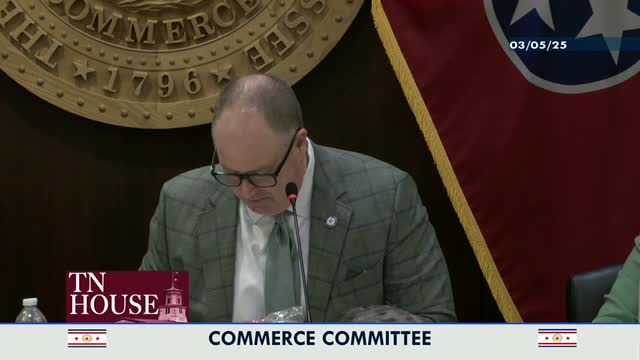Committee rolls Paystub Protection Act after members seek clarifications on scope and enforcement

Summary
Representative Harris’ Paystub Protection Act, which would require employers to provide pay statements within 20 days (and allows an additional 10 days after a department inquiry), was rolled one week for clarifying language about when statements must be provided and how independent contractors and enforcement will be handled.
Representative Harris proposed House Bill 1384, the Paystub Protection Act, to require employers to provide employees a written or electronic statement of earnings and deductions for each pay period. The bill and an amendment were the subject of extended committee discussion before the sponsor agreed to a one‑week roll.
Under the amendment presented, employers must provide a pay statement within 20 days of the employee’s pay date; if an employee files a complaint with the Department of Labor, the employer would have an additional 10 days to produce the statement. The amendment also clarified that a private cause of action would not arise from a violation of the statute, meaning that civil lawsuits would not be created by this measure.
Representative Harris described the amendment: “An employee shall provide to an employee… a statement of the employee’s earnings and deductions for each pay period within 20 days of the employee’s pay date,” she said, while adding the bill provides a window to avoid immediate penalties and to limit litigation exposure.
Committee members pressed on several points: whether the obligation is mandatory or only triggered on request, how the statute treats small employers who pay by check and historically do not provide stubs, and whether independent contractors are covered. Legal staff reviewed the bill language and said the draft defines “employee” as a natural person who performs services for an employer for valuable consideration and does not distinguish independent contractors; enforcement is driven by employee complaints to the department.
Chair and committee members expressed a desire to refine the bill’s language so that employers are not exposed to unintended penalties when employees do not request statements, while preserving worker access to pay information. The sponsor agreed to let the committee work with legal services and stakeholders; the chair rolled HB 1384 for one week for revisions.
Next steps: HB 1384 was rolled one week to allow clarifying amendments on employer obligations, the definition of “employee,” and the enforcement trigger.
— Article compiled from remarks by Representative Harris, legal counsel and committee discussion recorded in the House Commerce Committee transcript.

